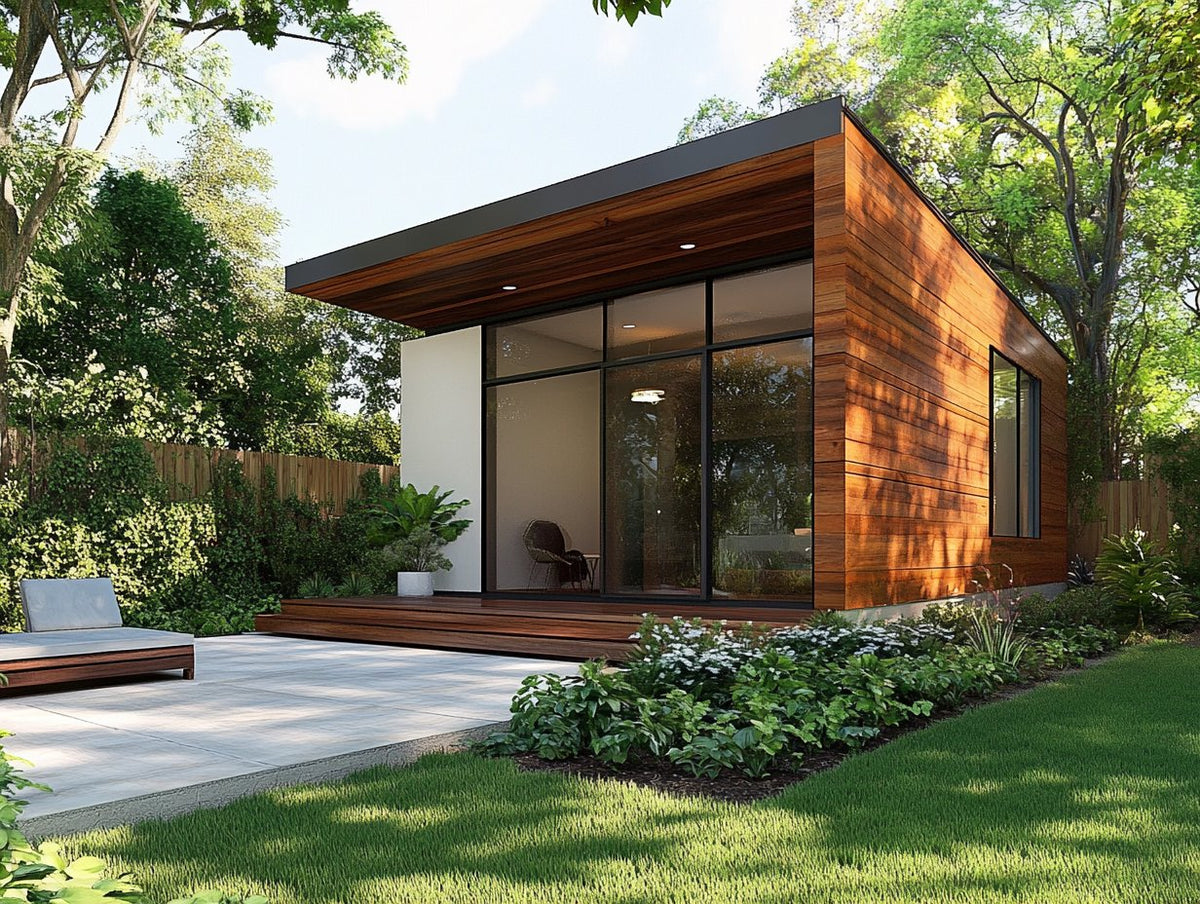
What States Allow ADUs: Opportunities for Homeowners and Investors
|
Time to read 5 min
|
Time to read 5 min
Introduction
As housing costs continue to rise across the U.S., homeowners and investors alike are seeking innovative solutions to maximize property value and create affordable housing options. Accessory Dwelling Units (ADUs) have emerged as a popular alternative, providing flexible living spaces that can be rented out, used for family members, or serve as additional living quarters for personal use.
But not every state allows the construction of ADUs, and the regulations around them can vary significantly. In this guide, we’ll explore the states where ADUs are legal, helping both homeowners and investors understand their options and capitalize on this growing trend.
An Accessory Dwelling Unit is a secondary housing unit built on the same lot as a primary residence. These units can be detached (a standalone building in the backyard), attached (an addition to the main home), or built within the existing structure (such as converting a garage or basement).
ADUs are a smart investment for homeowners because they:
While the legality of ADUs varies across the U.S., many states have embraced them as a solution for housing shortages and urban density. Here’s a breakdown of the top states where ADUs are allowed, along with some regulations and opportunities.
California has some of the most ADU-friendly regulations in the country. Due to the high cost of housing and increasing demand for affordable living spaces, the state has enacted laws to make it easier for homeowners to build ADUs. In fact, since 2020, California has passed several bills aimed at removing barriers to ADU construction, including easing parking requirements and allowing multiple ADUs on a single lot in certain areas.
This has led to a surge in ADU development across major cities like Los Angeles, San Francisco, and San Diego, making it a great state for investors looking to generate rental income.
Key benefits:
Oregon has positioned itself as a leader in sustainable housing, and ADUs are a key part of the strategy. The state’s policies encourage eco-friendly construction and urban infill development. Cities like Portland have embraced ADUs as a way to reduce urban sprawl while providing affordable housing options within city limits.
In 2021, Senate Bill 458 further expanded ADU opportunities by allowing homeowners to divide lots and create separate ADU properties, which can be sold independently.
Key benefits:
Washington State is another strong supporter of ADU development, particularly in high-demand urban areas like Seattle. The state is facing significant housing shortages, and ADUs have been identified as a solution for creating affordable rentals and housing diversity. In Seattle, ADUs are encouraged to help combat rising housing prices and density issues.
Local governments are increasingly removing barriers such as minimum lot sizes and parking requirements, making it easier than ever to add ADUs.
Key benefits:
While not as universally friendly to ADUs as some other states, Texas is starting to see more local municipalities embrace ADUs as part of their housing solutions. Major cities like Austin and Dallas have implemented zoning changes that allow homeowners to build ADUs on their property.
Austin, in particular, has been at the forefront of this movement, thanks to its efforts to address urban density and rising housing costs. Investors and homeowners in Texas can benefit from the state's low property taxes and fast-growing real estate market.
Key benefits:
With its stunning landscapes and popular outdoor activities, Colorado has become a desirable state for both permanent residents and short-term vacationers. ADUs are increasingly popular in Denver, Boulder, and even mountain towns like Aspen and Vail, where high property prices make affordable housing scarce.
Denver has relaxed its zoning codes to allow ADUs in many residential areas, especially to address affordable housing concerns. Investors can take advantage of the high demand for rental units, especially in tourist-heavy locations.
Key benefits:
Florida is seeing a growing interest in ADUs, particularly in cities like Miami, Orlando, and Tampa. The state’s high cost of living and popularity as a retirement destination have driven demand for smaller, more affordable housing options. ADUs provide a great solution for homeowners looking to generate passive income or house family members.
While ADU regulations vary by city, Florida’s overall investment climate is favorable, with low taxes and a growing rental market.
Key benefits:
ADUs offer a wealth of benefits for both homeowners and investors. Here’s why they’re an excellent choice:
With more states embracing Accessory Dwelling Units as a solution to housing shortages and high property costs, now is the perfect time to explore the potential of building an ADU. Whether you're a homeowner looking to add value to your property or an investor seeking new opportunities, ADUs are a flexible, affordable option that can provide long-term benefits.
If you're ready to learn more about how to incorporate ADUs into your real estate plans, visit My Tiny Home Hub to explore our range of expandable container homes that are perfect for ADU conversions.
Many more states allow ADUs, but states like California, Oregon, Washington, Texas, and Florida have favorable ADU laws.
Yes, ADUs can provide rental income, increase property value, and offer multi-generational living options.
ADUs are allowed in many states, but zoning laws and regulations vary, so check your local laws.
ADU costs can range from $17,000 to $200,000 depending on location, size, and customization.
Yes, ADUs can be rented out for both long-term and short-term rentals, depending on local regulations.